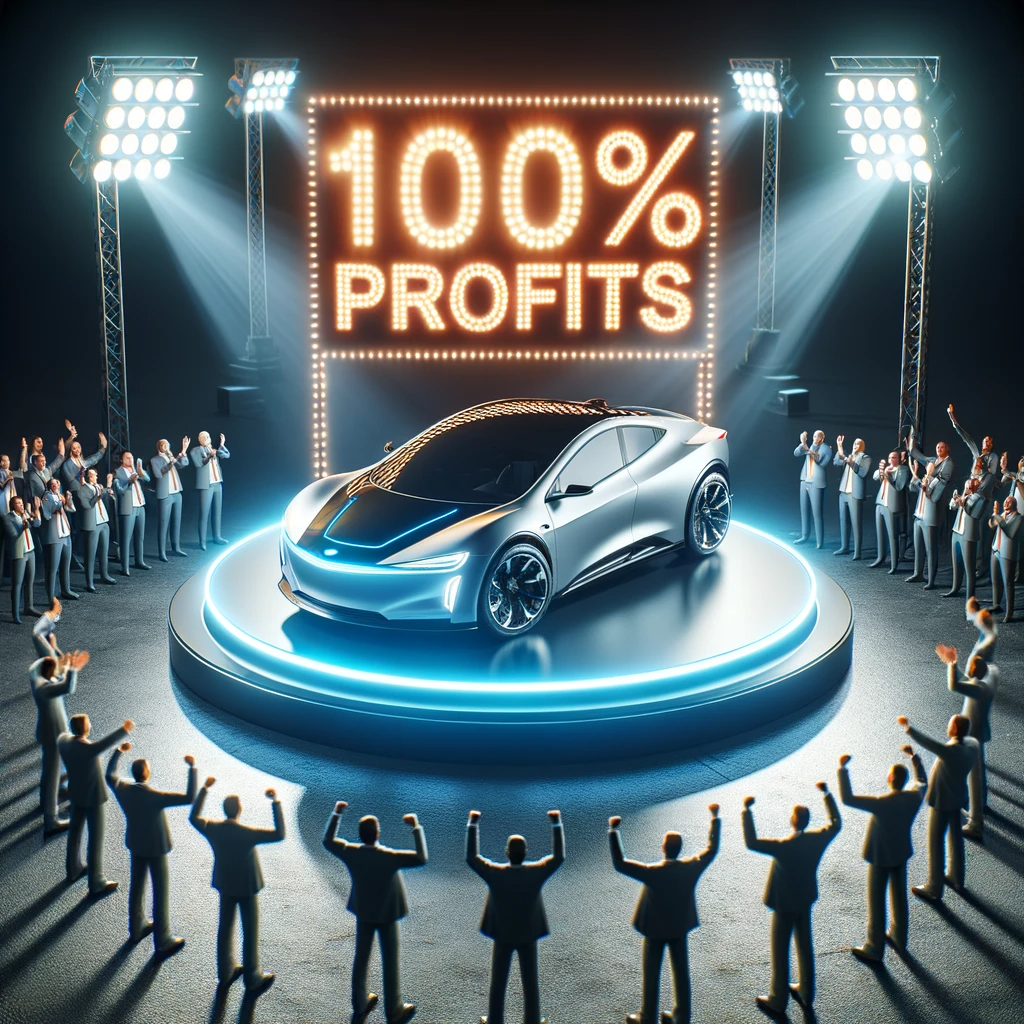The electric vehicle (EV) market, amidst its race towards the future, recently hit a bump as BYD, one of the key players, reported a staggering loss in the third quarter (Q3), indicating a significant downturn in free cash flow by -$7.3 billion. This decline, from a robust +$4.8 billion to a concerning -$2.6 billion, has thrown a spotlight on the intricate dynamics between BYD and its closest competitor, Tesla.
The contrast between Tesla and BYD has always intrigued industry analysts. The comparison, however, isn't straightforward given BYD's dual focus on EVs and Hybrids. While it's hard to pinpoint where BYD's modest profits were coming from, the affordability of its cars, with an Average Selling Price (ASP) about 1/3 of Tesla's, placed them in a different market segment, akin to comparing a Porsche to a Ferrari.

Despite these differences, BYD was often seen as a close competitor to Tesla, especially in terms of EV profitability. However, the financial setback in Q3 has not only impacted BYD but has provided a glimpse into the slim margins with which EV makers have to operate. The downturn implies a bigger narrative, resonating with past scenarios witnessed in Tesla's journey and even Apple's path in the smartphone market.
As Q3 financial narratives unfolded, Tesla emerged as a stark outlier, holding onto 100% of the profits in the global EV market, despite a possible dip in its Battery Electric Vehicle (BEV) market share in the US and other regions. Even as legacy automakers face the heat with substantial losses per EV sold, amounting to around $36,000 for Ford and similar figures for others, Tesla's profitability in Q3 stood as a testament to its robust business model.
Moreover, the global automotive free cash flows witnessed a sharp 41% quarter-over-quarter decline as per a study revealed by AJ on X, encompassing data from 10 automakers representing about 50% of the overall automarket. This alarming trend reflects a cash hemorrhage among traditional automakers, attempting to navigate the EV landscape amidst claims of an EV demand problem. This scenario, they argue, necessitates a re-evaluation of their EV ventures to staunch the financial bleeding.
The juxtaposition of Tesla's profitable stance against BYD's loss and other automakers' cash flow woes paints a vivid picture of the challenges and opportunities in the EV sector. With Tesla seemingly monopolizing EV profits, the industry stands at a pivotal juncture. The narrative of 'competition is coming' reverberates through the sector, but as the dust settles post Q3, Tesla's solitary profit narrative underscores a critical moment of reflection for the industry.
As traditional automakers grapple with cash flow crises and the legacy of hybrid models, the EV market dynamics are set for a compelling epoch. The road ahead beckons a rigorous re-evaluation of strategies for BYD and others, while Tesla continues to bask in its unique profitable position, setting a high bar in a market striving for both innovation and profitability amidst a transitional automotive era.




Share:
Debunking the Myth of Declining EV Demand: A Closer Look at Tesla's Unprecedented Growth
10 Must-Have Cybertruck Accessories That You Should Get in 2024
2 comments
This analysis highlights just how tough the EV game has become. BYD’s Q3 loss and massive drop in free cash flow show how slim the margins really are-even for top players. While their affordable pricing helps them reach a wider audience, sustaining profitability at that level seems increasingly difficult.
This analysis highlights just how tough the EV game has become. BYD’s Q3 loss and massive drop in free cash flow show how slim the margins really are-even for top players. While their affordable pricing helps them reach a wider audience, sustaining profitability at that level seems increasingly difficult.